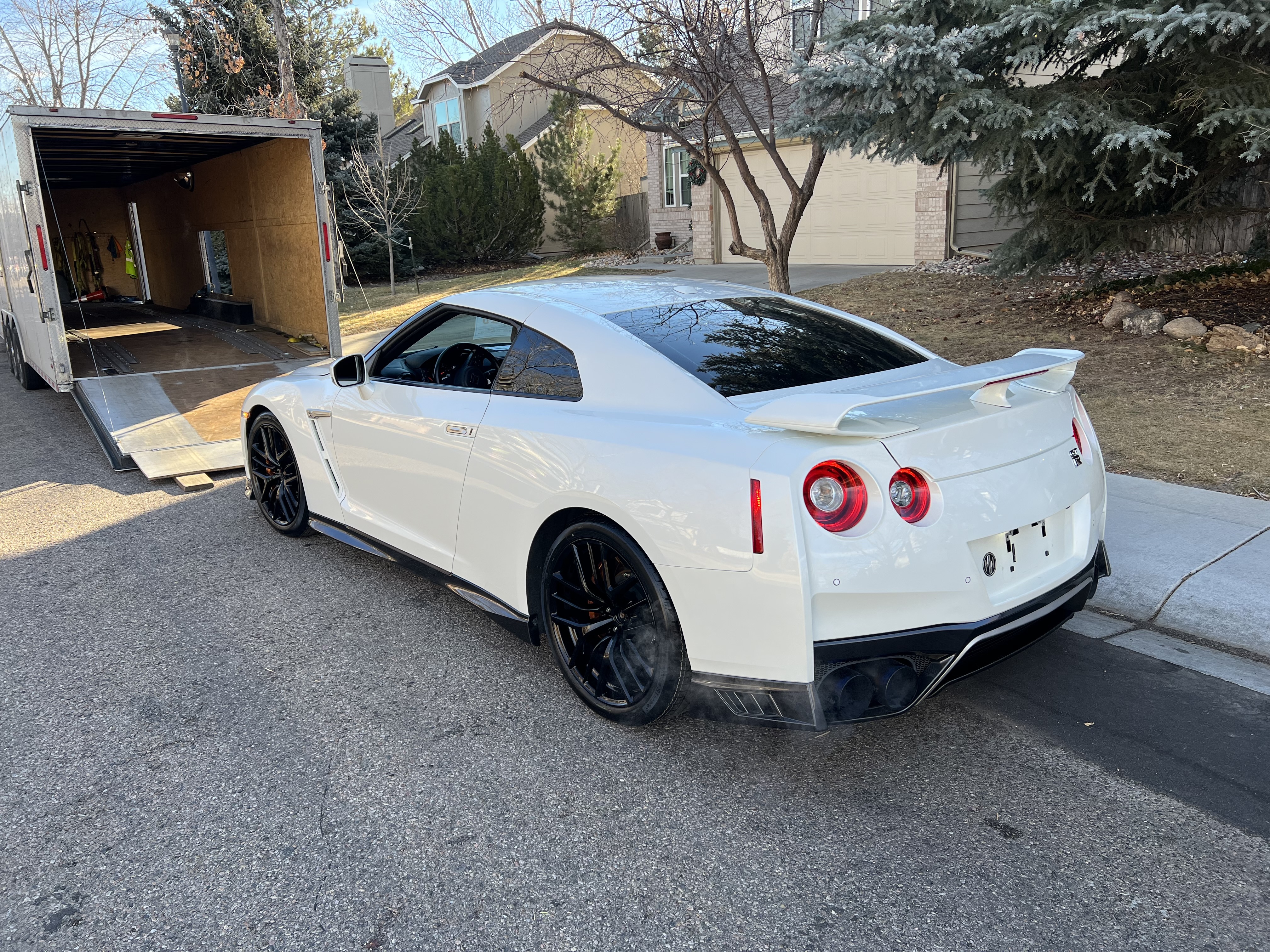Considering that the average American moves 11.7 times in their lifetime, it wouldn't be unreasonable to assume that you're moving soon. At the very least, where you are now probably isn't going to be your permanent home.
So when you do move, chances are, you won’t want to leave your car behind. While it might take some prep work, it’ll all be worth it when you don’t have to go through the process of purchasing a new vehicle at your new destination.
Not only do you have to pack up all your belongings, but you also have to cancel subscriptions, change your address for accounts, finish up work, and check off countless other things before you can relocate. And if you've got a car, then you need to take care of either driving or shipping it too.
Don’t know where to start when you need to prepare your vehicle for transportation? Then keep reading, as we’ll give you a complete guide on what to do!
What Do You Need To Know Before Shipping A Car?
With the right car ship tips over the course of your order preparations, you'll be able to evade additional shipping costs and protect your car during transport. Before shipping a car, do everything in your power to prepare and safeguard your car for the journey ahead.
And if you’re not sure what that means exactly, don’t fret. We’ve compiled a list of car shipping tips for you to employ before every vehicle shipment.
Gather up All Necessary Documents
This is the first item on your car shipping checklist. If you don't bring the right paperwork, there might be delays or you won't be able to transport your car at all, so it's important you locate everything right away.
The vehicle shipment documents you'll need are:
- Original vehicle title
- Driver's license
- Proof of registration
- Proof of insurance
- Bill of sale (proof of ownership)
How Can I Protect My Car While Transporting?
9 Vehicle Transport Tips To Properly Prepare A Car For Transport
Give it a good wash. The cleaner your car is before transport, the easier it’ll be to inspect.
Don’t forget about the inside either. Loose items could damage your car’s interior when bumps are encountered during vehicle shipping.
Look for leaks. A leaky car is dangerous for car transporters and could be refused on pickup day.
Don’t fill your gas tank up. More gas means more weight and potentially more car shipping costs for you.
Check your tire pressure. Overinflated or underinflated tires could end up damaging your vehicle when loading and unloading off a car hauler.
Disable alarms. Your truck driver will thank you for saving them a headache or two.
Remove accessories. After-market car parts and vehicle accessories might break off during shipment, leaving you out of luck.
Lock up your car. This is especially smart if you’re using an open car hauler and could dissuade potential thieves when your driver stops to rest or eat.
Know how to prepare your car for transportation. The more you know, the easier your car shipping process is likely to be.
Bring Your Car to an Auto Shop. You'll want to make sure your car's in tip-top shape before it's hauled off. That way, you know it's in operable condition when you receive it.
Now that we’ve given you a shorthand of the 9 most important vehicle transport tips for preparing a car for shipment, let’s dive a bit deeper. An informed customer is a smart customer, and the following car transport tips are here to help.
1. Give It a Good Wash
Part of the auto transport process is checking over your vehicle both before and after it’s in transit.
You’ll go through thorough inspections with the driver so you both know what damage is preexisting. That way, if your car somehow gets damaged while it’s being transported, you’ll know exactly where it is.
If your vehicle is all dirty and dusty, then some scratches and dents can be hidden. Be proactive and give your car a good wash so that all preexisting damage is easy to spot.
2. Don’t Forget About the Inside Either
Don’t just give the outside of your car the VIP treatment. The inside needs a good clean as well. And this isn’t just to give the driver a good impression either.
You see, while your car’s in transit, it might go over some bumps and other jarring motions. When that happens, whatever’s not secured in your vehicle can go flying and cause damage.
So when you prepare your vehicle for transportation, do a thorough clean inside. Get rid of everything loose, such as change, soda cans, pens, etc.
Also, if you have any electronics, you’ll want to unplug them and either put them in the glove compartment or pack them in your boxes. This includes the cables, as these can come loose and damage your car too.
3. Look for Leaks
You don’t want your car leaking dangerous fluids while it’s in the back of a truck. Even worse is a trucker can refuse to take your car if it’s leaking badly.
So way before your moving day, take a good look for any leaks that might be coming out of your vehicle. Get down and look at the undercarriage with a light.
If you find any leaks, get them fixed up ASAP so your vehicle is good to go.
4. Don’t Fill Your Gas Tank Up
No, that's not a typo: you shouldn't fill your gas tank up before using auto transport services.
While it may not seem like much, imagine if every car had a full gas tank. This can quickly add up and make the hauler a lot heavier, which ends up costing more in fuel.
As a result, those costs are passed onto you, which makes the service more expensive.
All you need is enough gas to drive to and from your pickup and drop-off locations. The less fuel you have in the tank, the better.
5. Check Your Tire Pressure
Vehicles aren’t driven while they’re in transit, which is why so many people don’t think about tire pressure. But the truth is, it’s very important to check your car’s tire pressure.
If they’re under or over-inflated, damage can happen when your car’s either being loaded or unloaded. So make sure you take a look at your owner’s manual and get your tires to the right pressure.
6. Disable Alarms
This might seem like an obvious one when it comes to how to prepare a car for transport, but you'd be surprised at just how many people forget to disable car alarms before giving them to the trucker.
So make sure you stay on their good side by double-checking (or even triple-checking!) that you've turned off the alarms before your vehicle leaves your possession. Otherwise, it can tick off a driver if there's a car going off in their hauler that they can't do anything about.
7. Remove Accessories
Are you someone who likes to show off their car by putting lots of accessories and after-market parts on it? While that can certainly help your vehicle stand out from the crowd, you will have to remove these things before shipping it.
Again, this is to protect against damage. These things can break off and leave you scrambling to find the same parts and accessories again.
So do yourself a favor and secure these things before transporting your vehicle. It'll take a little extra work, but it'll be worth it to protect these pricey belongings.
8. Lock up Your Car
Last, but not least, you should lock up your car. Considering there’s no need for anyone to access it while it’s out of your hands, this shouldn’t be an issue with the auto transport company.
With enclosed haulers, it's not as much of a worry. But if you're using an open hauler, you'll want to protect against possible theft. While locked doors won't stop a determined thief, it's a worthwhile added bit of security.
9. Know How to Prepare Your Vehicle for Transportation
By knowing how to prepare your vehicle for transportation, you'll make things a lot smoother and easier for yourself.
From giving your car a thorough wash to checking the tire pressure and removing accessories, be sure to take the time to prep your car. By doing so, it’ll be a better time for both you and the trucker.
If you need to ship your car across the country, then request a car shipping quote from us today.
10. Bring Your Car to an Auto Shop
An auto shop can perform general car maintenance for you, such as checking the fluids, battery, and tire pressure. The mechanics can also determine if any minor repairs need to be made to prevent your car from breaking down. If you noticed any leaks when performing your own inspection, let them know so they pay extra attention to these areas.



